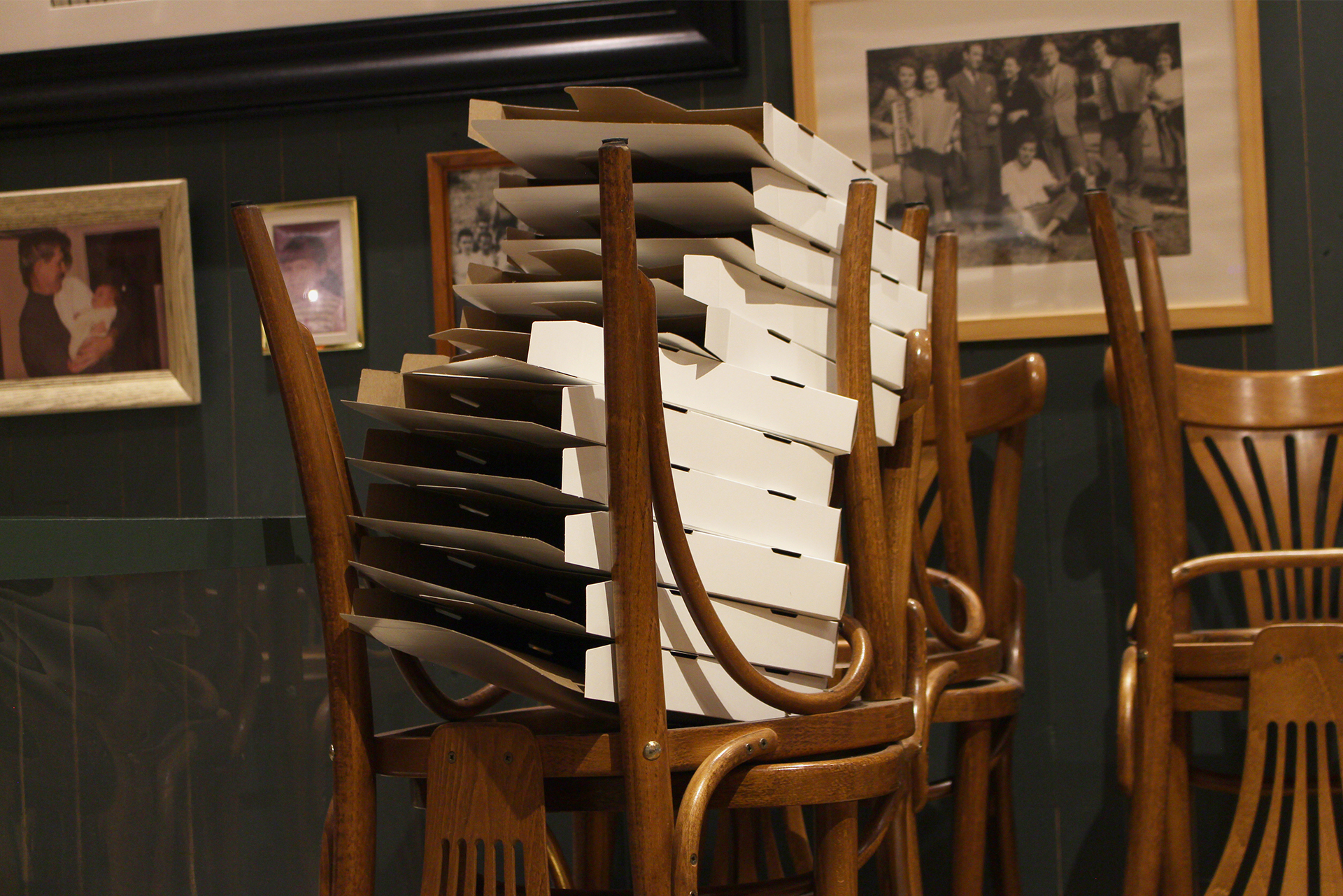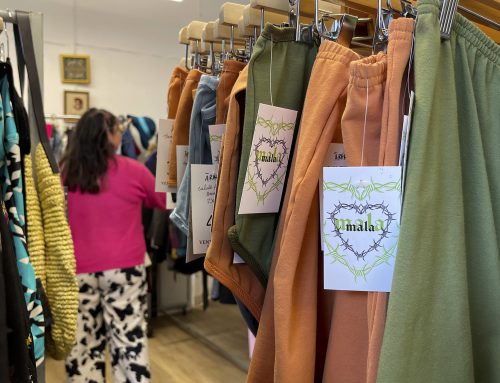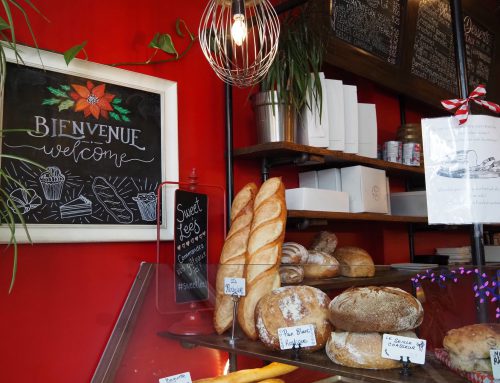BY Jacob Carey & Camille Perrin-Ridgway
Santiago Hul receives an e-mail alert. It’s from his retail website, informing him that a customer in California has placed an order for a silver pendant. He steps away from his desk and enters his store, grabbing the pendant, some tissue paper, and a shipping box that will soon be dropped in the post.
This routine has become the new normal for the owner of Montreal-based crystal shop, Crystal Dreams, which was pushed to rely on e-commerce by rounds of government lockdowns.
“It has had a lot of impact on our business in different ways, some of them ways we didn’t even expect, some that we’re still discovering to this day,” says Hul.
The Montreal crystal shop, like all non-essential businesses, was forced to close for the first time in March 2020. Hul says his shop was growing quickly before the shutdown stopped it dead in its tracks.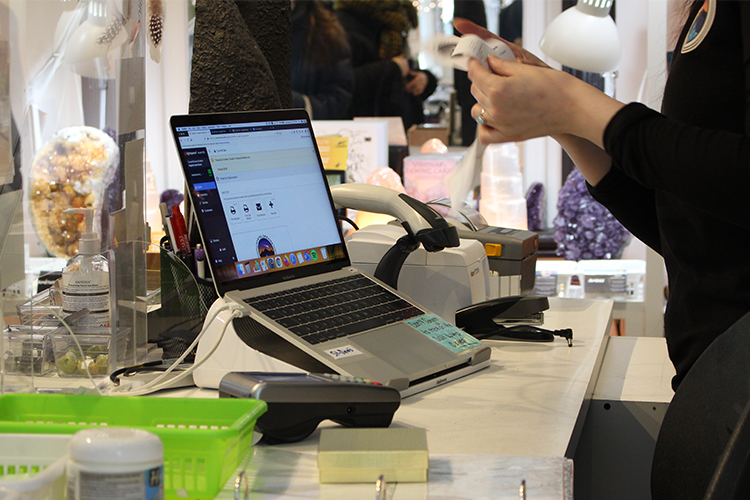
An employee at the Crystal Dreams store on St-Denis street preparing an online order. Photo by Camille Perrin-Ridgway.
Hul says that his online store was already mostly completed when COVID-19 hit. It was the store’s physical closure that sped up the process and resulted in Crystal Dreams’s online launch last spring.
“We were able to go fully online, take pictures of products, posting them on WordPress, writing articles, posting on social media,” Hul says. “It really gave us a lot of time to make a full transition into the online world. It has made us more resilient—it has made us become more organized also. We don’t have the choice now, because any mistakes, right now, for a business, could be fatal.”
This optimistic decision to view the pandemic’s financially crippling closures as some form of silver lining is not unique to Hul.
Steve Marcoux, owner of music shop and band practice space Boite à Musique, is optimistic about the future of his store, despite his revenue taking a dive of 90 per cent at the start of the pandemic.
Boite à Musique’s revenue is typically a 50/50 split between client purchases and business-to-business transactions. The store primarily rents out space to musicians, but also makes a large portion of their income through equipment rental to festivals and event planners. While most of the world may have thought the initial lockdown could only last a few weeks, Marcoux knew that festivals, his biggest breadwinners, would not be returning any time soon.
Like Hul, Marcoux knew that he needed to find other ways of making income. Marcoux created an online shop that would sell equipment, instrument accessories, apparel, and band merchandise.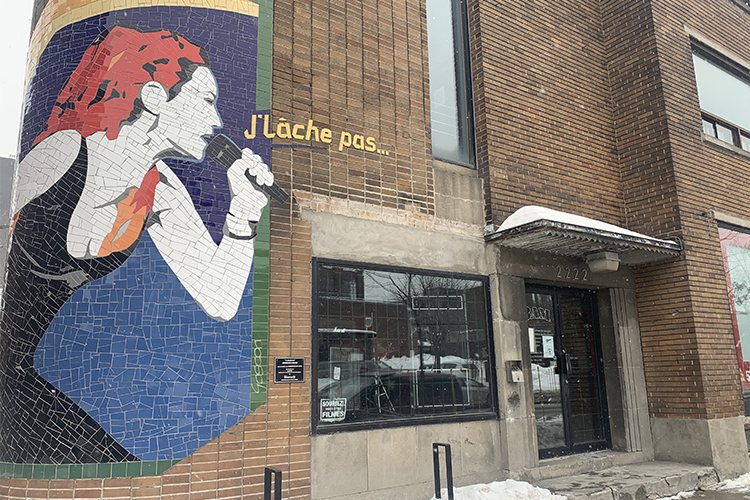
Mantra “J’lache pas,” written on the walls of la Boite a Musique in Hochelaga, takes on a new meaning in COVID times. Photo by Jacob Carey.
“On that end, it was really a win-win situation for us,” Marcoux says of promoting and selling local musician’s merchandise at no cost to him. “We used to work with a lot of producers, executive producers, the labels… but since the start of the pandemic, we get the chance to actually work with the bands. I think a lot of bands are realizing that things will not be the same and they are working more closely to connect with their fans.”
The human connection with the talent themselves aside, Marcoux is confident his transition to e-commerce, combined with the eventual reopening of his store, could prove beneficial. He took it upon himself to learn search engine optimization and research online marketing to increase brand awareness. As profits have slowly grown, Marcoux is looking on the bright side.
“Even when the pandemic is over, e-commerce will continue,” Marcoux says.
Joseph D’Alleva sells pizzas instead of vinyl records, but the attitude remains the same. As co-owner of Rita Restaurant in Verdun, D’Alleva’s fate was undetermined and unpredictable following the March 2020 closures. With no online infrastructure set up, takeout only in place for pizzas, and the inability to sell wines, D’Alleva knew he needed to act quickly to adapt to the times.
A timeline of COVID-related events that affected the businesses mentioned in this story. Media by Jacob Carey.
During the first wave of lockdown, Rita Restaurant stayed completely closed. Then D’Alleva used the partial reopening as motivation for setting up his business for online orders.
“That was really easy because it was kind of the big hump for setting ourselves up for takeout, making sure all these systems were in place,” D’Alleva says. “We were never online before. We never had an online platform, we never had ordering online. We were never part of UberEats or any of those.”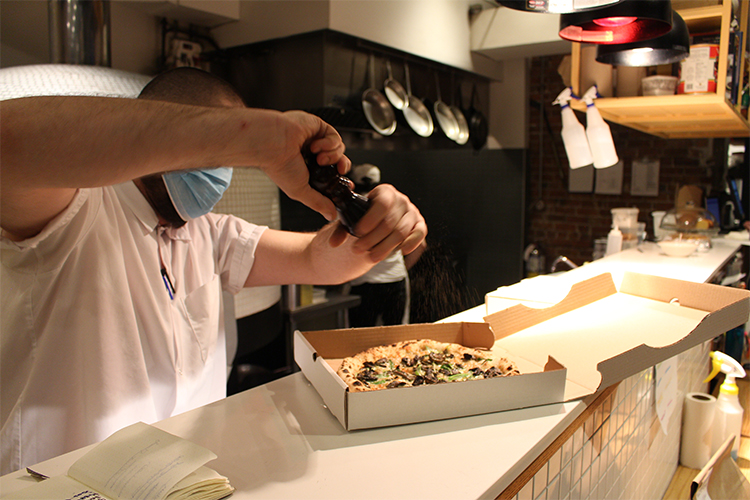
Food preparation looks a little different in COVID times, as pizza is prepped with masks . Photo by Camille Perrin-Ridgway.
As fate would have it, Rita was forced to rely solely on takeout during the second wave. Yet, D’Alleva knew that without adjusting accordingly, his fancy, experimental plates of pasta and pizzas and other Italian dishes may not do so well without the presence of a waiter reassuring customers of their choices. Instead, D’Alleva added some more classic items to the menu—an all-dressed pizza, the occasional batch of chicken wings, and rare wines that were legalized for purchase with takeout.
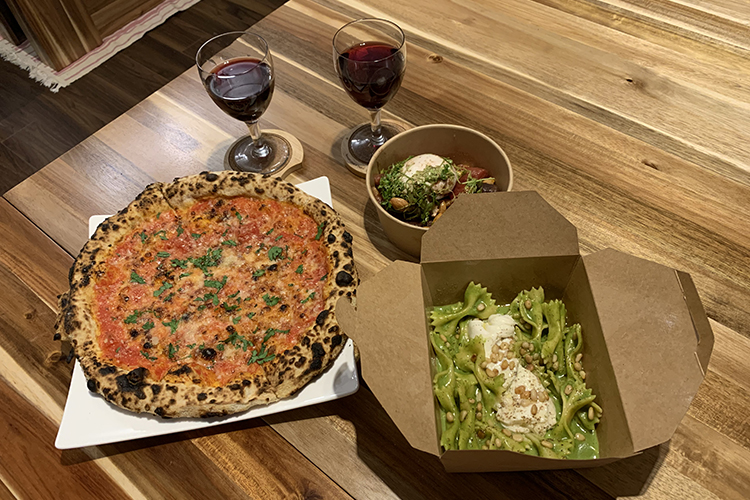
A new normal: takeout dinner-for-two from Rita Restaurant, enjoyed in the comfort of your home. Photo by Jacob Carey.
“We added some classics that I don’t think we’ll be able to take off anymore,” D’Alleva says. “They’ve become so beneficial to the menu that I don’t think I could remove them without people being upset about it. We really had the opportunity to expand on what we thought would be cool and would never work before.”
Despite his initial doubts, D’Alleva is assured that his menu will come back better than ever once restaurants reopen for good.
But some businesses are facing more difficult long-term prospects. For example, movie theatres might be looking at permanent changes in their audiences and the way they work.
Montreal cinemas deemed non-essential have had to adapt their business model to fit COVID times, but experts believe the industry is standing on its last legs. Video by Camille Perrin-Ridgway.
Jennifer Brazer, author of From Cubicle to Cloud: How to Start and Scale a Virtual Professional Service Business, believes many businesses who have turned to e-commerce will likely find themselves better off when the pandemic is over.
“I do think that we will see a trend towards businesses adapting this virtual presence as an ongoing part of their business,” said Brazer, “and if not, a growing and driving part of [it]. We’re learning a new way to do business and I think they are going to find that it could be a much more profitable way and allow them access to a greater market, which then allows them to expand more rapidly and do so without large amounts of capital.”
Brazer says that the full-gear shift to e-commerce for most businesses was inevitable—it was just a question of when.
“I believe that the pandemic pushed us there a lot faster than we were comfortable with,” said Brazer. “But, it also made it necessary for businesses to survive and so they adopted rapidly and I actually think that they are going to find, in hindsight, that this is to their benefit. Those who adopted will now have this new method which was ultimately going to come – it wasn’t not going to arrive.”
